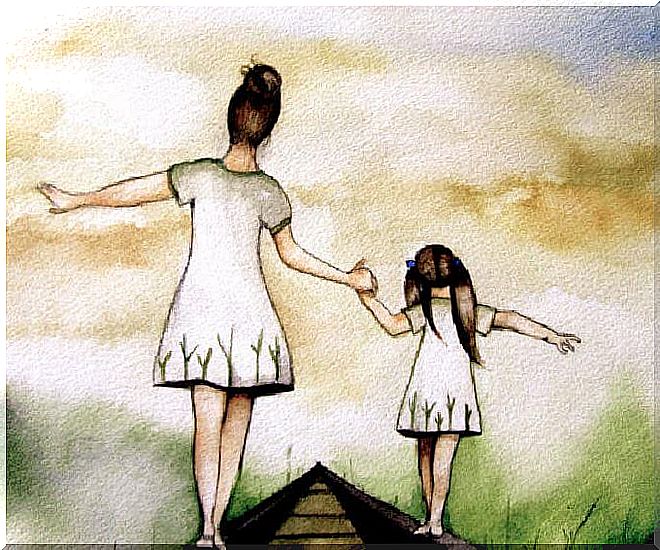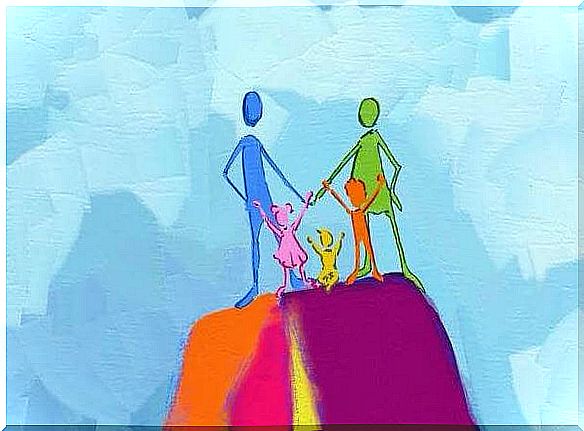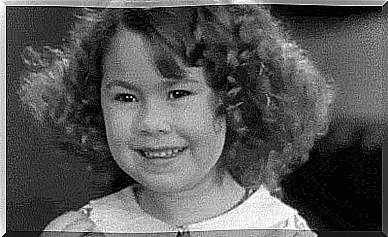Parenting And Love, Two Words That Travel The World Hand In Hand

Raising and building a family are two of the most wonderful and magical challenges that life can present to us. Why? Because from the first moment the children become the greatest treasure of the parents, in their place in the world, their home, their corner, their everything.
Raising and loving are two verbs that travel the world hand in hand, since the vast majority of parents, from the deepest and most unconditional affection, share their thoughts and emotions with their children, rediscover life, explore the world and help them evolve to the family as a nucleus of noble values.
The fair thing to do then is to emphasize that being parents is not easy, because despite the fact that the adventure of parenting brings people closer to the real world and puts their feet on the ground, in reality educating in love and positive values is one of the most colossal tasks out there.

The family, the cradle of emotional education
Our lights and shadows are projected individually within the family conditions that promote our development. Thus, Kaye’s expression is correct when she affirms that “the child is placed by the family system in which he is born in the position of apprentice of the system; that is why we can ask ourselves what are those characteristics of family systems that will facilitate or hinder the learner from becoming an adult capable of permanently evolving or blind to this possibility ”.
Being parents is usually inherent to the restlessness and the need to learn to perform our roles in the best possible way. This implies that we must enhance our communication and personal skills in relation to our roles as parents and as people. This confluence requires, therefore, that we approach emotional education from the first moment.
Emotional education begins from birth, since the way in which parents convey their affection, expectations and beliefs about the child is decisive for the child’s development. Specifically, the first years of life are decisive for several reasons:
- the most notable influence on a child corresponds to the establishment of a basic security framework, which after all is transmitted through physical and affective contact with the child.
- a key aspect becomes part of emotional education: language. Its appearance and evolution allow us to put words to behaviors, ways of being, feeling and thinking. This milestone undoubtedly configures a before and after.
- and they constantly seek the attributions of their parents in a way of approval, which makes them order, understand, predict and deal with the world and with themselves.

The 5 fundamental pillars of emotional education
To make a correct emotional investment in the education of our children, we must attend to at least five fundamental pillars:
- Accompaniment through words and deeds: communicating correctly, sincerely and emotionally with our family is one of the key supports when it comes to maintaining good relationships with children , whether they are children or are already on their way to adulthood. At this point, it is essential to be consistent and analyze our actions.
- Emotional self-knowledge: if we want to captivate children through emotions, we must be a reflection of a good emotional adjustment, which we will only achieve if we are clear about which emotions are healthy and which emotions are unhealthy, always assuming that You have to offer them resources for a good understanding and management.
- Managing our emotions: being aware of our thoughts, assertively raising disagreements, creating as a family and correctly managing tensions and stress are the foundations of emotional intelligence that sustains a healthy and happy family.
- Serenity in communication, the basis of family conciliation: trust and conciliation allow us to recognize ourselves as a family within our own diversity. That is why we must reinforce our empathic and interpersonal communication skills, which will allow us to adequately resolve various problems and conflicts.
- Encourage the concern to know the universe of emotions: exploration and curiosity is the base pillar of all good education. Likewise, through exploration and hetero-knowledge we reinforce the pillars that sustain a mind free of prejudices and stereotypes.
- Respect and emotional validation: we must be clear that, as Carl R. Rogers wrote in his book “The process of becoming a person” , we are unaware of the tremendous pressure we exert on the people we love to have the same feelings as U.S. In other words, often with our way of speaking and acting it seems that we say “if you want me to love you, you must feel the same as me. If I feel that your behavior is bad, you must feel the same; If I think that a certain goal is desirable, you should feel the same ”.

There are no perfect parents, but there are many ways to be good parents
Being the perfect parents 24 hours a day, 365 days a year is a daunting task. That is why in this sense we must be thorough and admit that not everything is wonderful and that there is no ideal prototype by which we can guide ourselves.
Thus, by direct or indirect experience, we all know that what is important about parents is not that they are people with imperfections and insecurities, but that as such they offer their children the possibility of living in a balanced, enriching and emotionally intelligent world.
There is no magic formula for that, but there is an ingredient that all good educational principles share: infinite love. This feeling is what makes parenting work huge every day and ensures that parents are able to offer the best version of themselves as educators.
Illustrations courtesy of Claudia Tremblay and Víctor Rivas Fernández.









